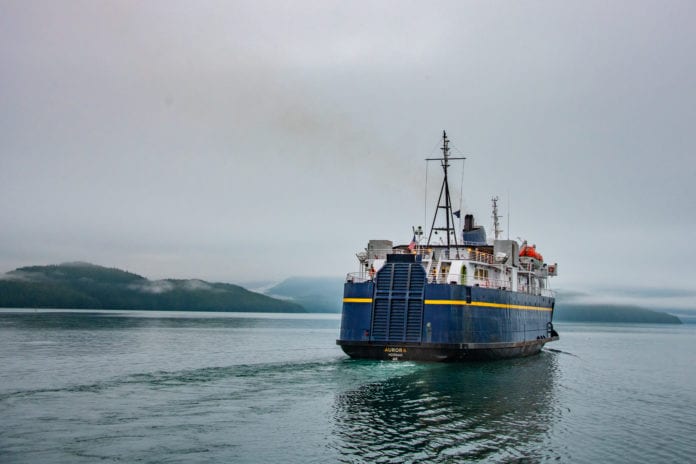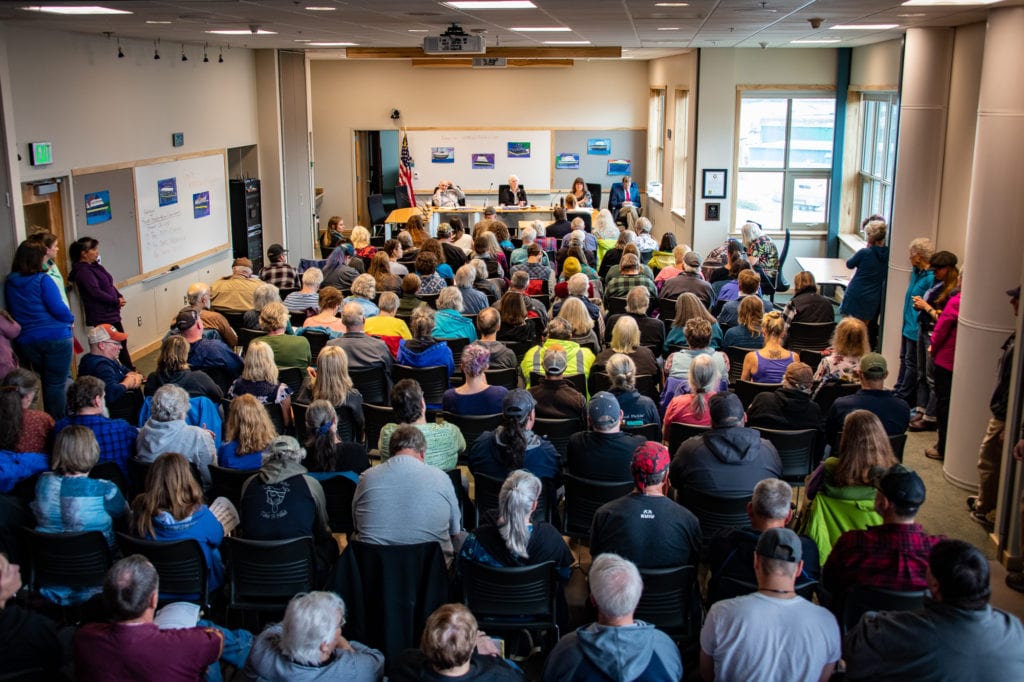
By Mayors Jeremy O’Neil, Pat Branson, Clay Koplin and Frank Kelty
For The Cordova Times
The Legislature faced tough questions this session, with a proposed budget that significantly cut services or cost-shifted state expenditures to local governments. As part of the governor’s proposal, funding to the Alaska Marine Highway System was reduced by nearly $75 million, and language inserted that called for divestiture of ferry assets. Essentially, the governor proposed ending ferry service later this fall.
There were roughly three responses. First, outrage – public testimony hosted by the House Transportation Committee broke a record as community members overwhelmingly rejected this approach. Second, deliberation – the governor’s office called for a new analysis of options; the Department of Transportation issued a request for proposals and awarded a contract to review alternatives, which follows a three-year evaluation that’s been led by Southeast Conference. Third, negotiation – the Senate Finance transportation subcommittee heard from DOT officials a variety of scenarios at different price points that reduced service but kept basic service intact.
The Senate’s budget – and ultimately the version passed by the Legislature – included $40 million in reductions and accepted the concept of reduced service. The justification was that reduction was better than elimination. Legislators may have been worried about protecting a higher level of funding from vetoes and believed that this reduction would best protect the system. Indeed, the governor did not further reduce the ferry system’s budget via veto.
This compromise undermined the sustainability of communities that relied upon this service. The public, including many local government officials representing port communities, was clear about the need to keep the system whole. In fact, erosion of service over time was pointed to as having already contributed to destabilization of the system. The public was clearly willing to go to bat to protect a transportation system that for them is just as critical as a rural airport or the Glenn or Parks highways.
The assumptions that go into reduced service are that some service is better than none. Local governments have experienced state decision-making over the years that demonstrates just how challenging that assumption can be. Expenses have gone up, revenue has gone down and local governments are faced with doing less with less. It’s easy to think about a reduction in any one year being acceptable. The net effect, however, is likely to be that communities that once depended on an affordable and predictable transportation system in the form of the ferry, will face delays, increased costs and reduced quality of life.

Many of the communities that the ferry system serves face some of the highest air travel and freight costs in the state. Those additional costs not only increase the cost of doing business for local governments, but also for school districts, which the state has an obligation too. That’s not saying anything about the actual increases loss of the ferry system mean to businesses in the region, as well as local economies.
The reliance of communities on this vital transportation system was clearly evident during the recent strike. Visitors to Alaska were left with expensive options. Residents faced delays, higher prices for goods and, in many instances, postponed travel plans. Businesses suffered and crucial shipments were delayed or canceled, and this ultimately decreased the health of local economies.
When the system starts to unravel, we know that for each community, impacts will start out small and short-term – families that had previously used the ferry to get groceries, see their doctor or get to sporting events, will have to use less reliable, more expensive options. They’ll make tough decisions about their quality of life. Over the long term, this is how Alaska loses communities.
Local government leaders especially are concerned about the micro-level impacts of these reductions, even as they understand that the system needs reform. That is why instead of accepting a $40 million reduction this year, many communities called for a vision for the ferry system that results in predictability, dependability, affordability and ultimately sustainability. The recently released winter schedule – a result of a deal necessary to avoid a veto – compromises the sustainability of many Alaska communities, the health of our economy, and the well-being of residents.
Reductions in service don’t lead to the changes necessary to the system. Reductions lead to loss of the ferry system for communities that depend on it.
Jeremy O’Neil is the mayor of the city of Valdez. Pat Branson is the mayor of the city of Kodiak. Clay Koplin is the mayor of the city of Cordova. Frank Kelty is the mayor of the city of Unalaska.





